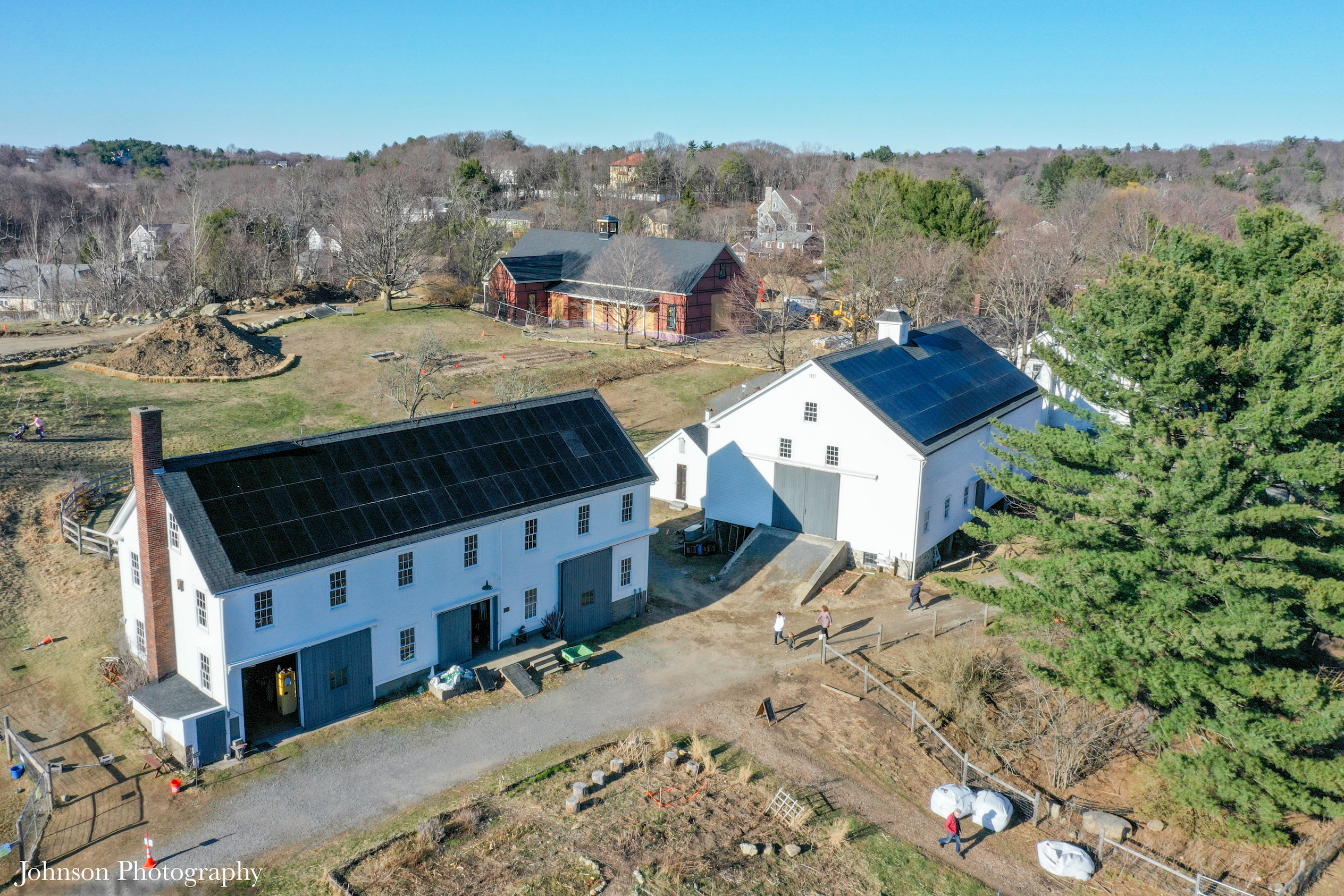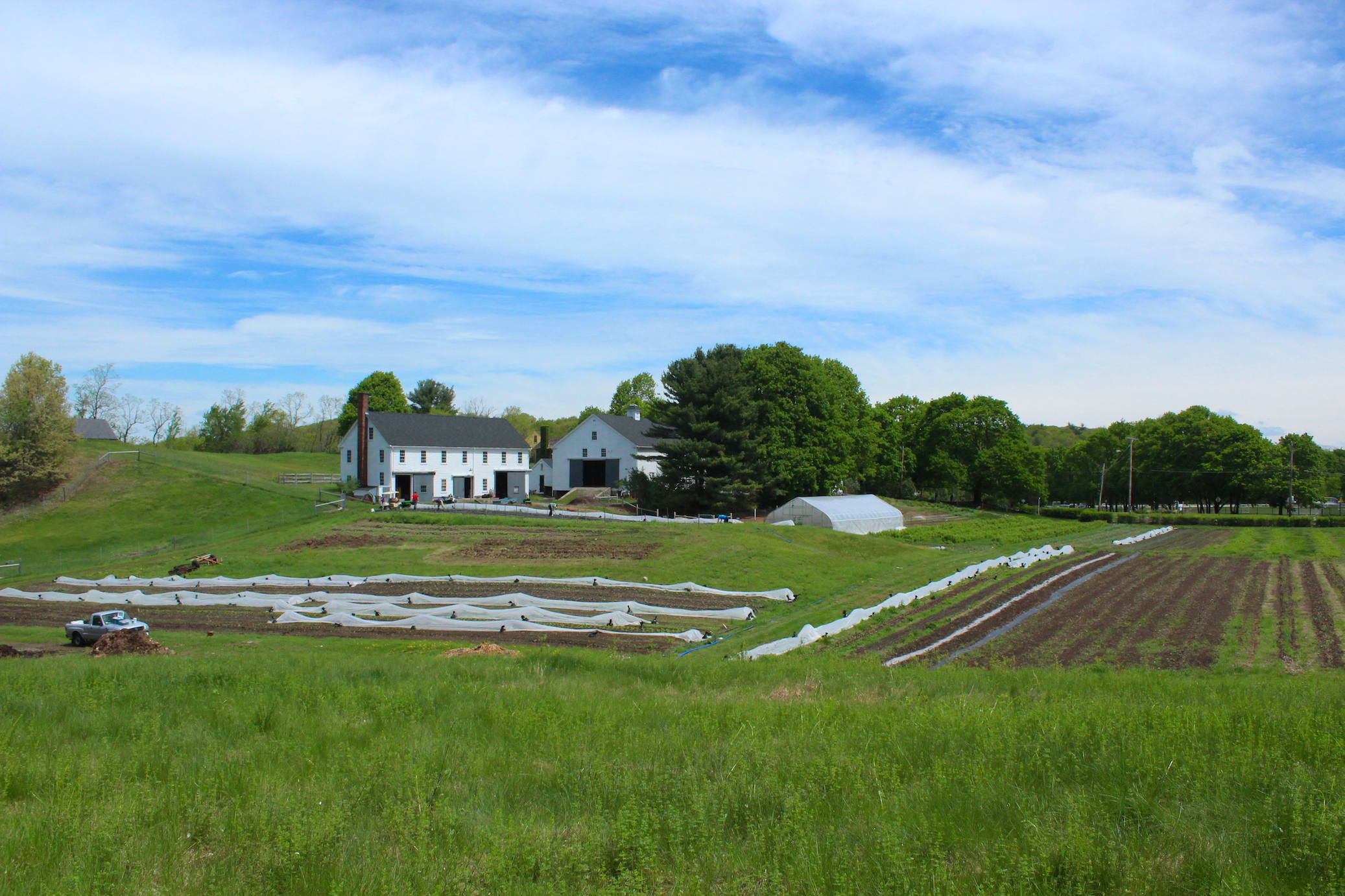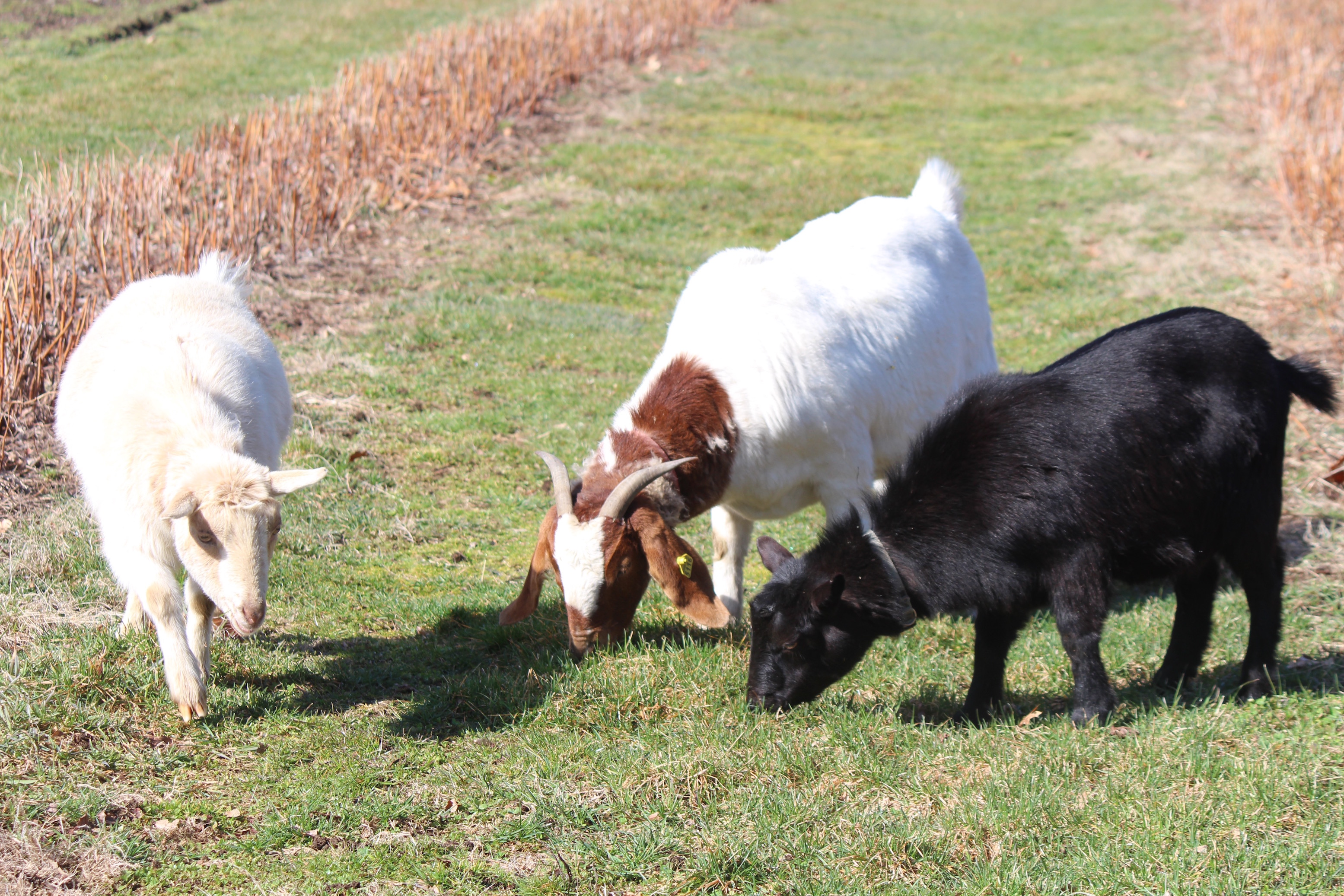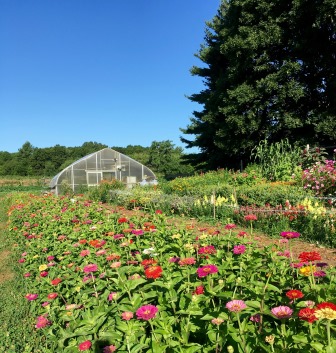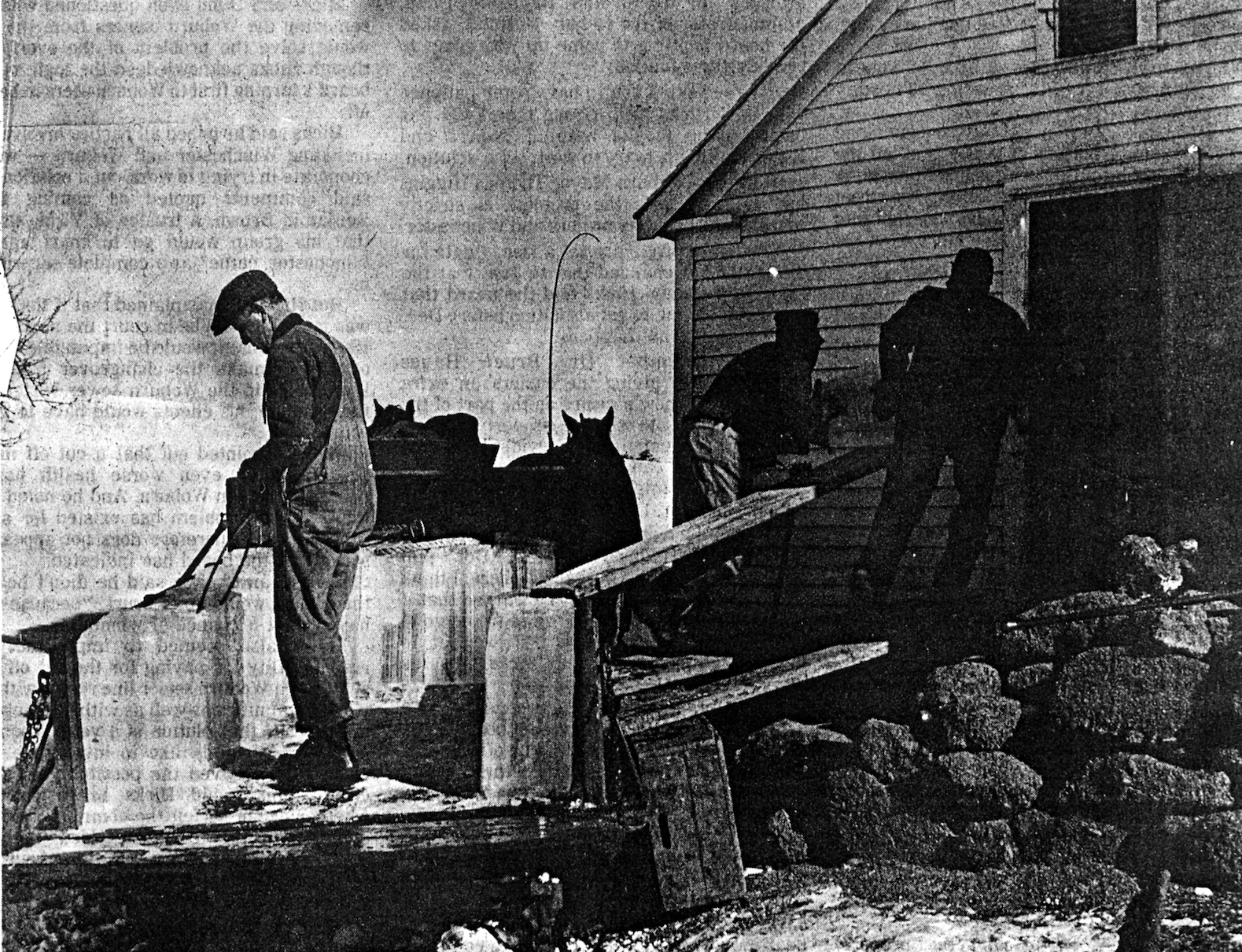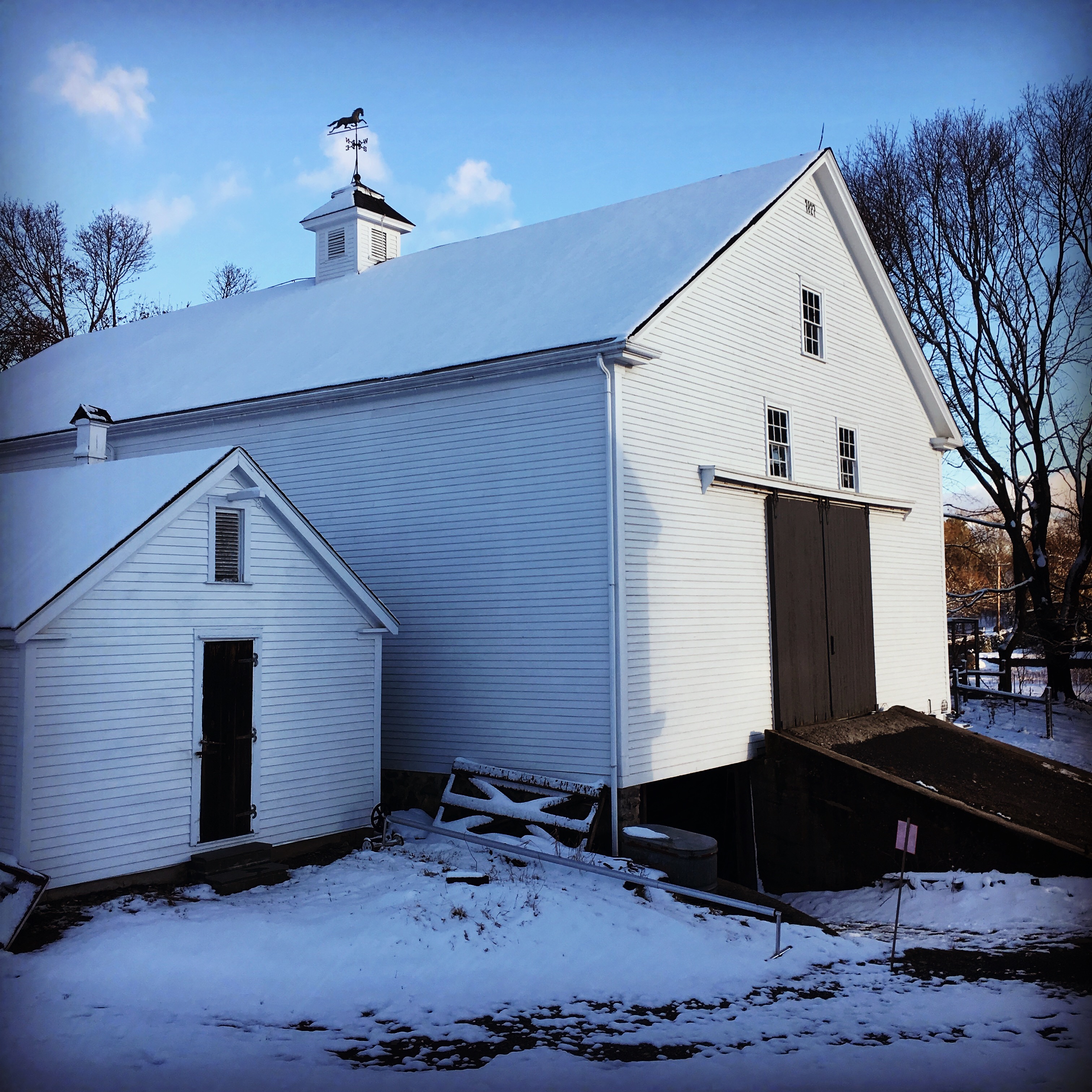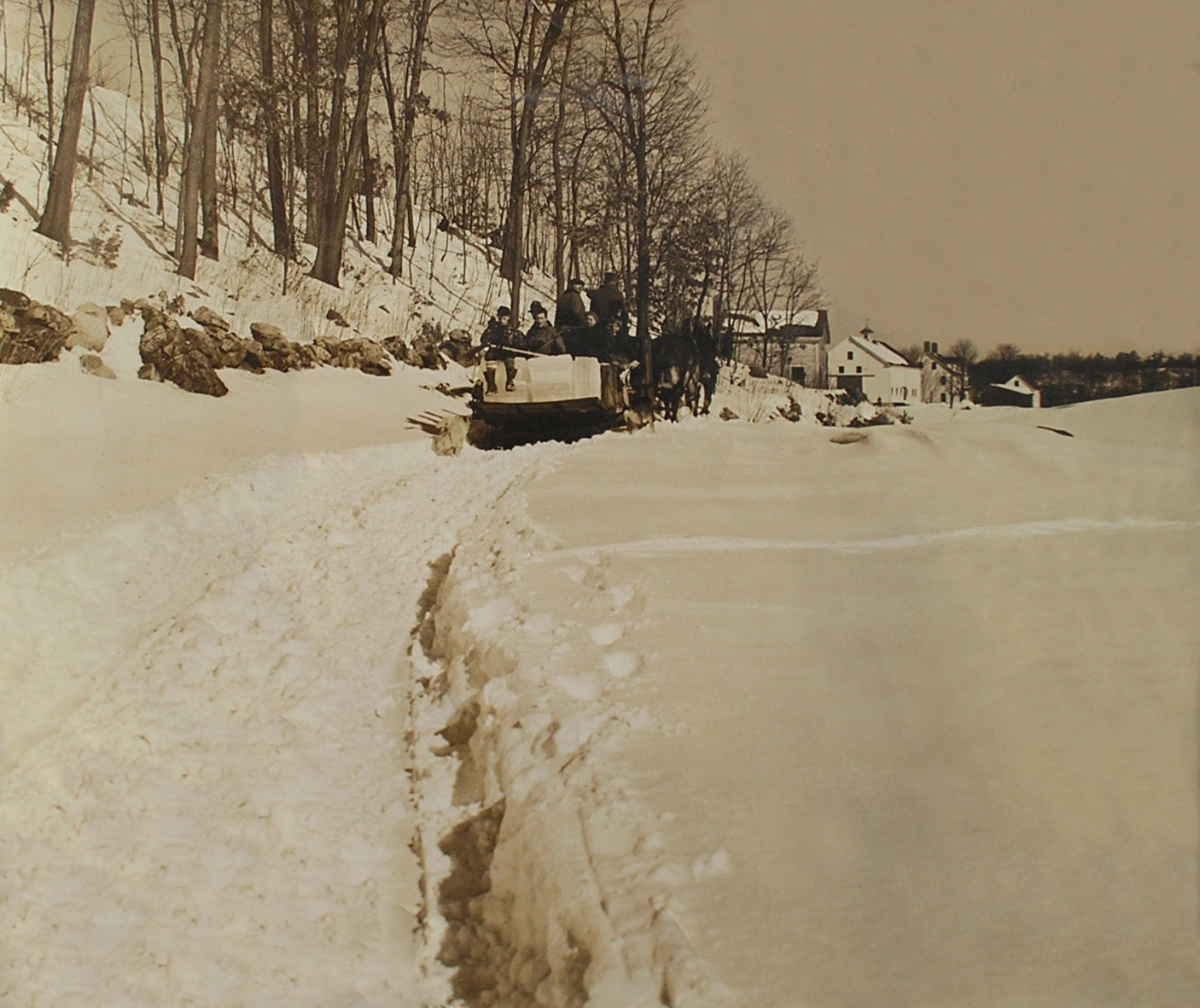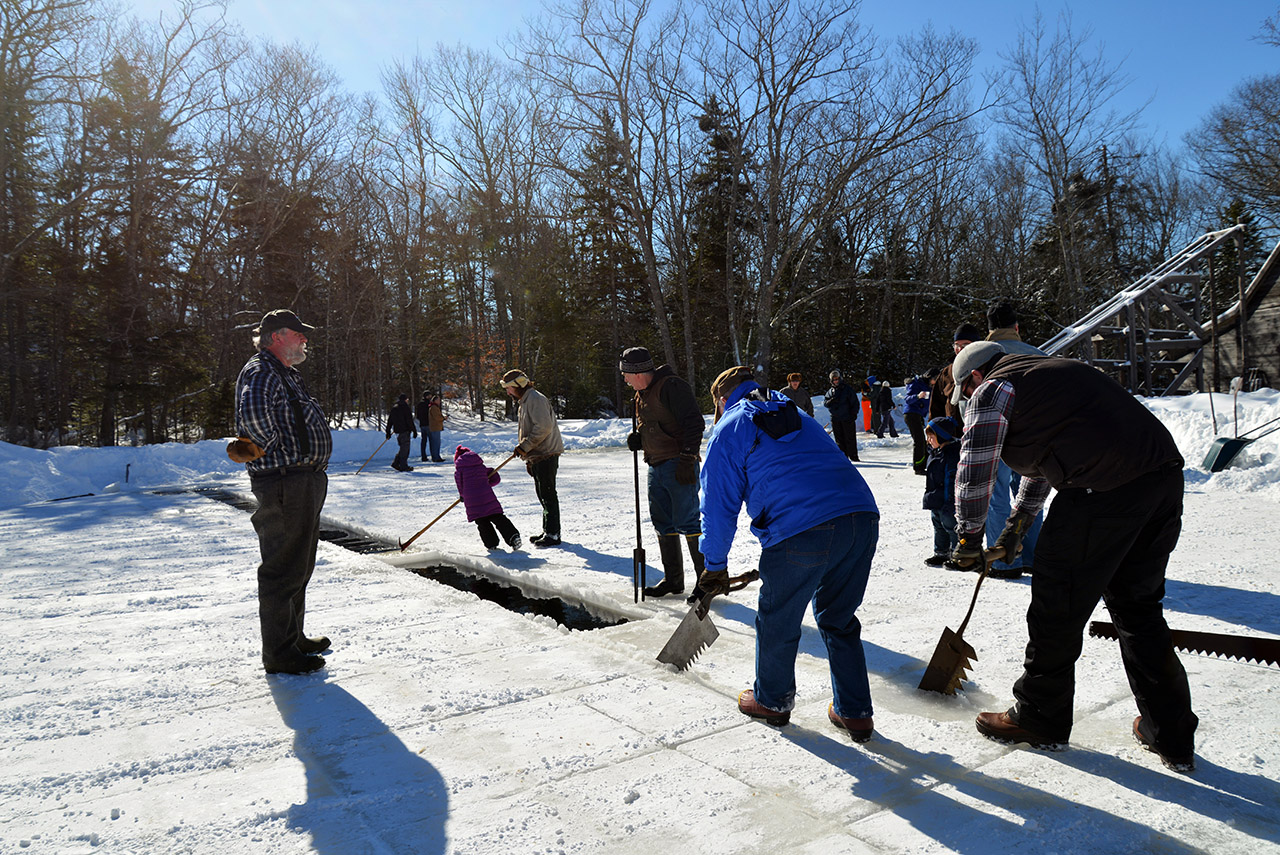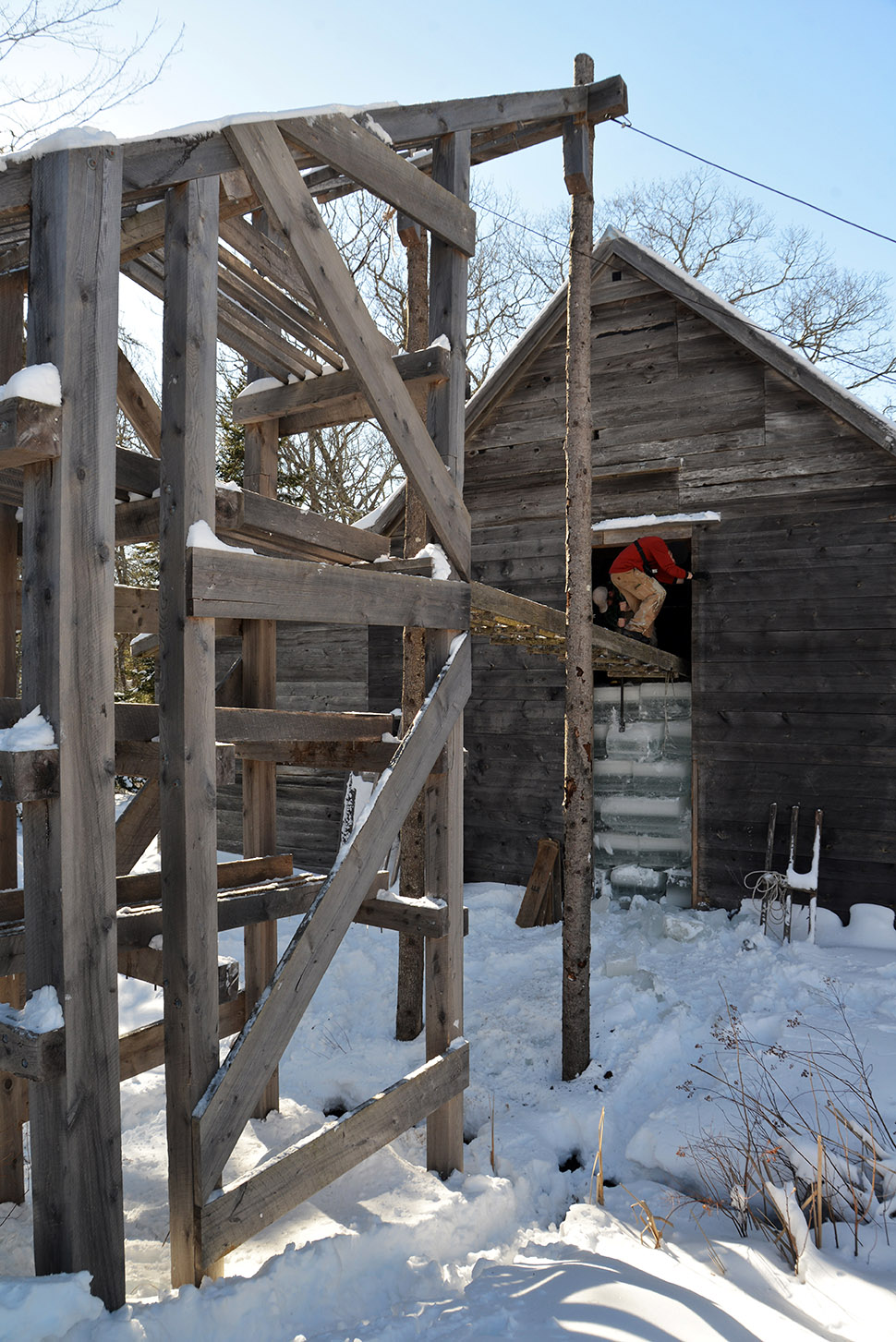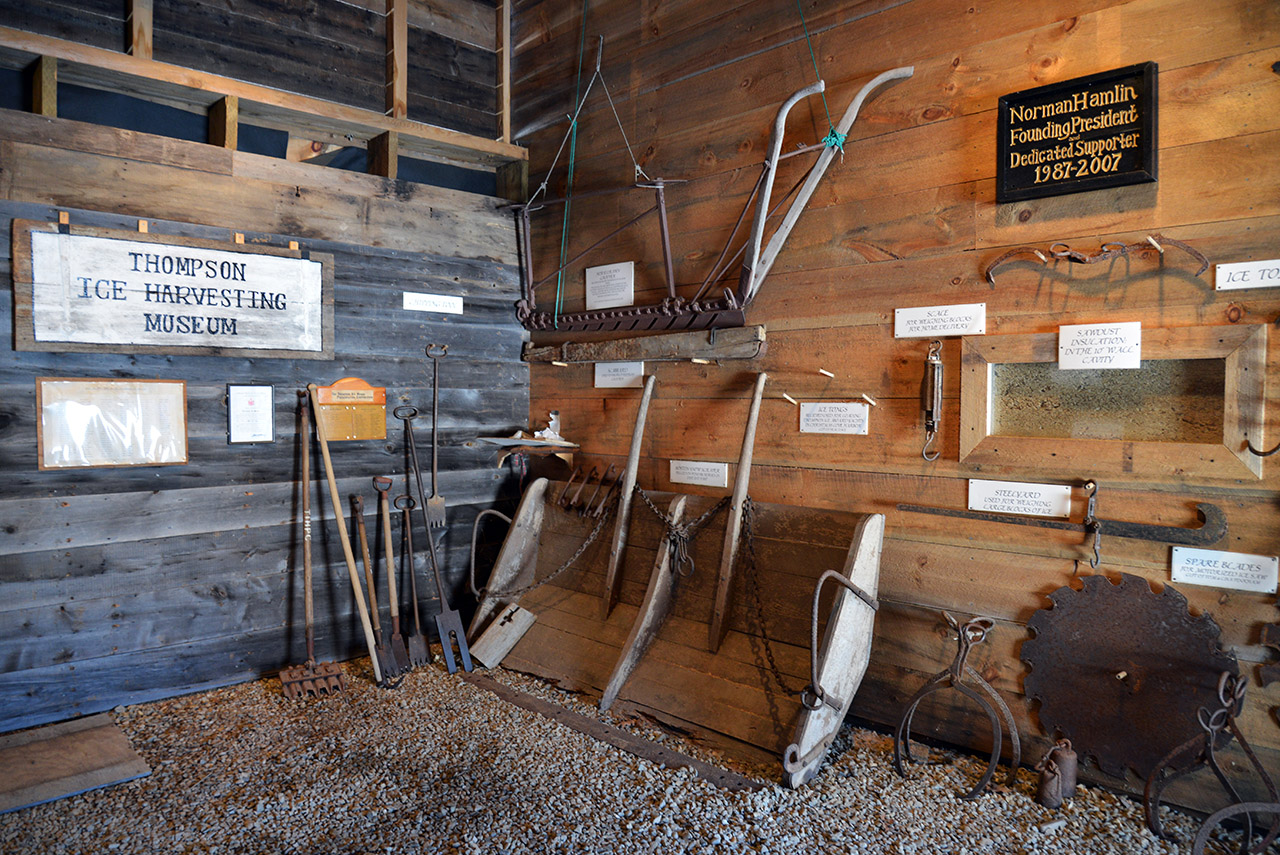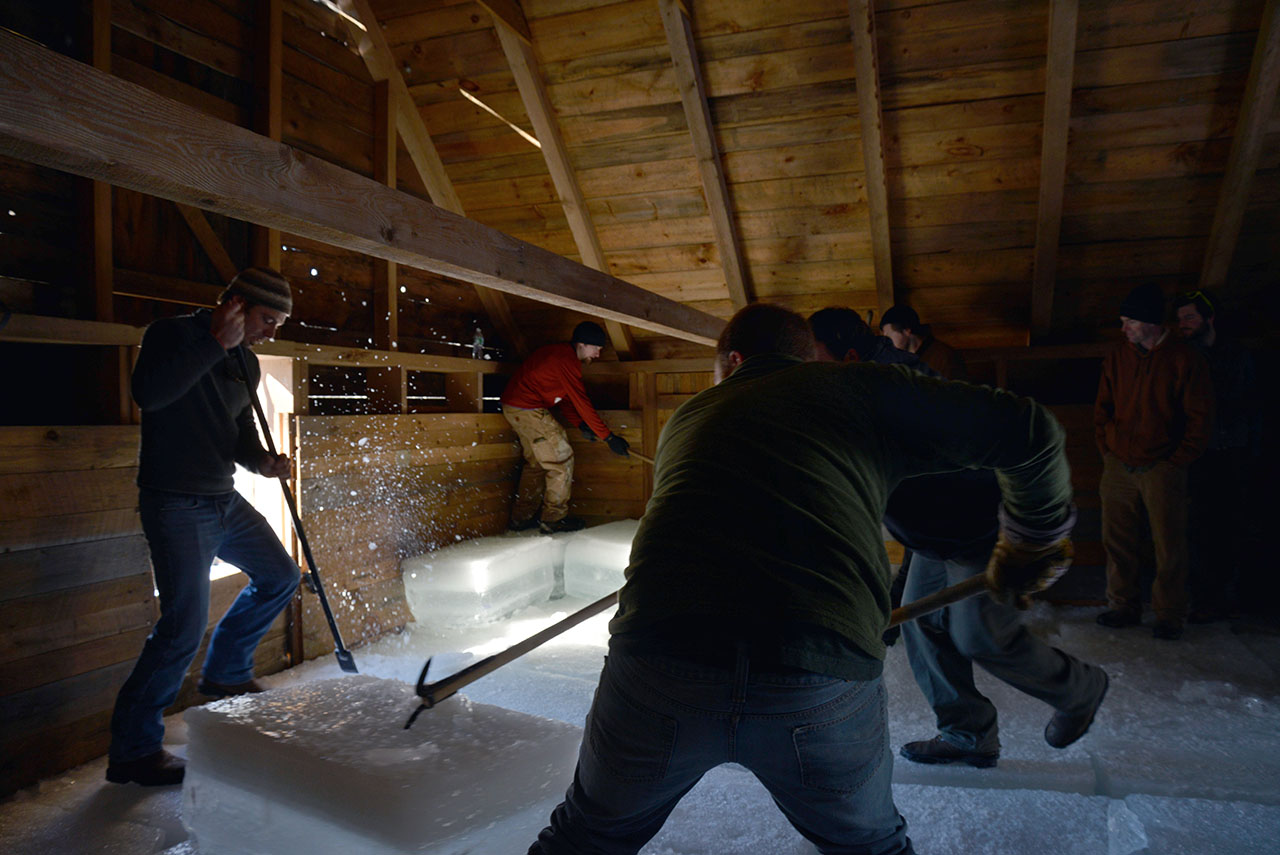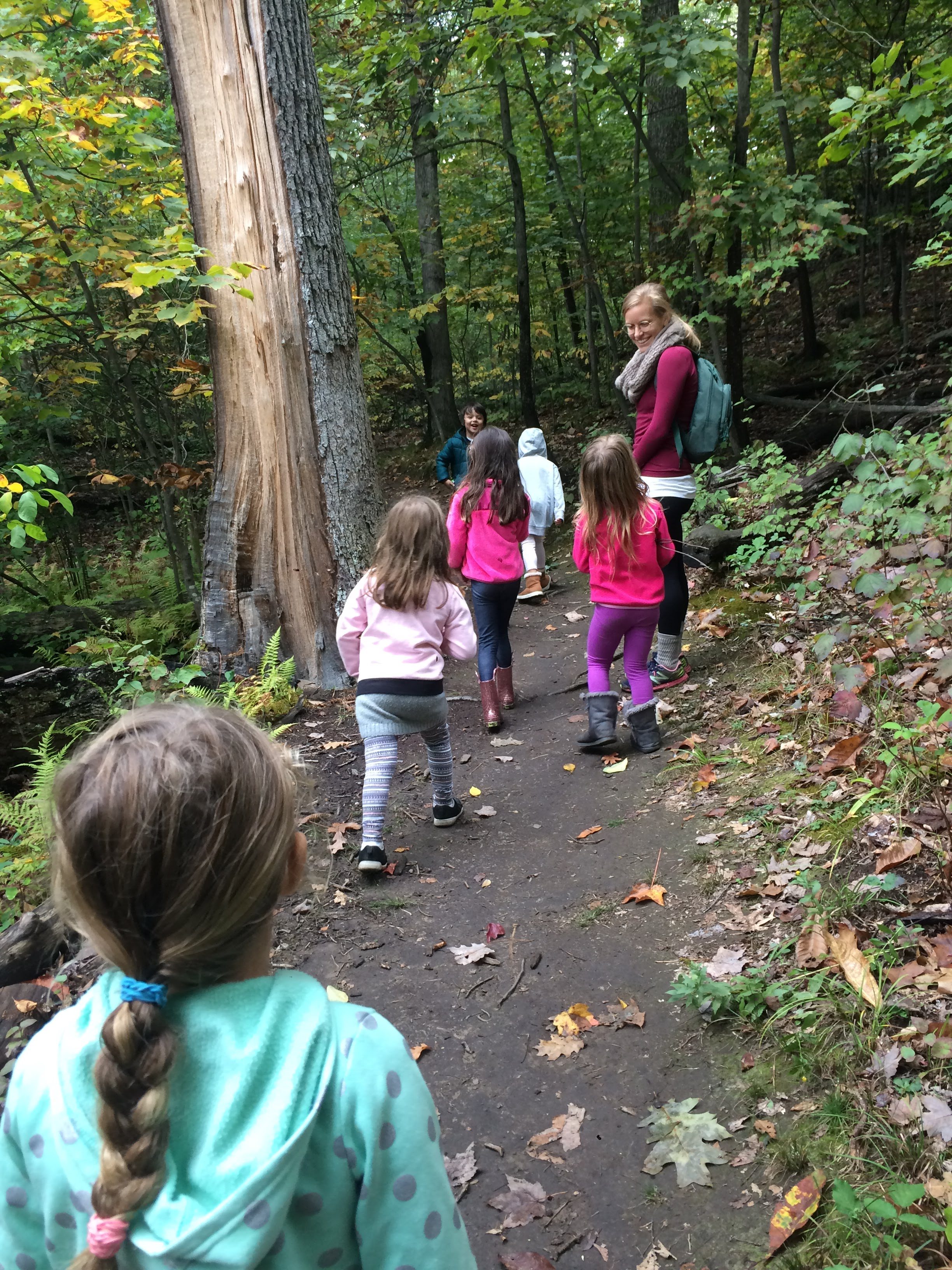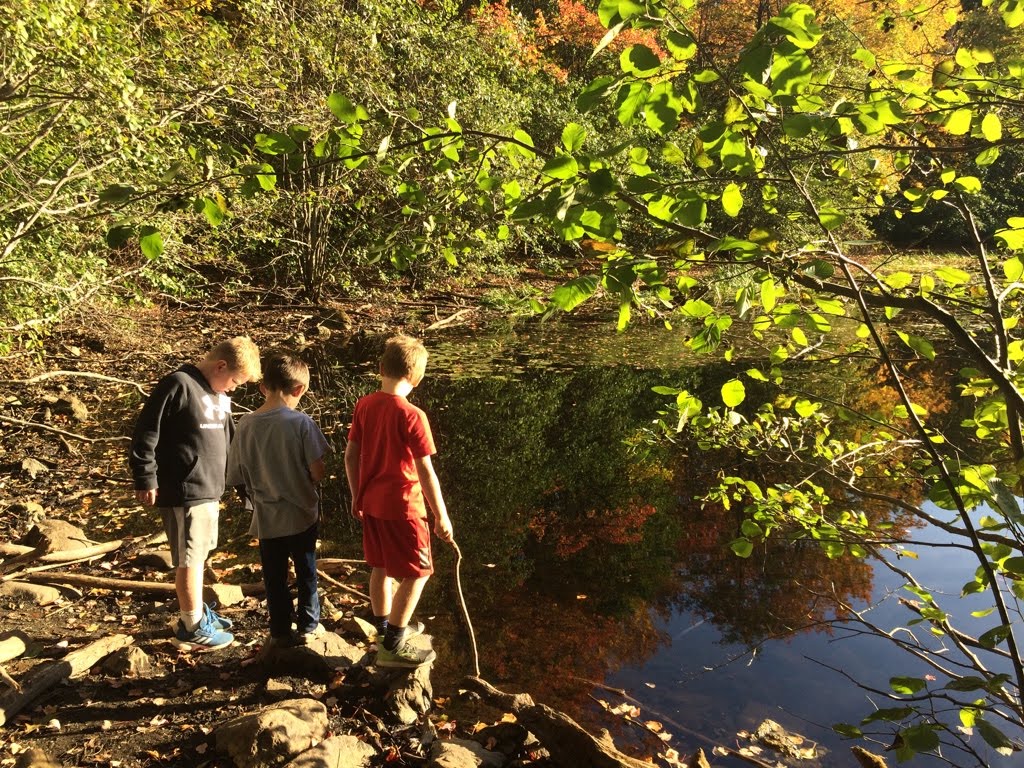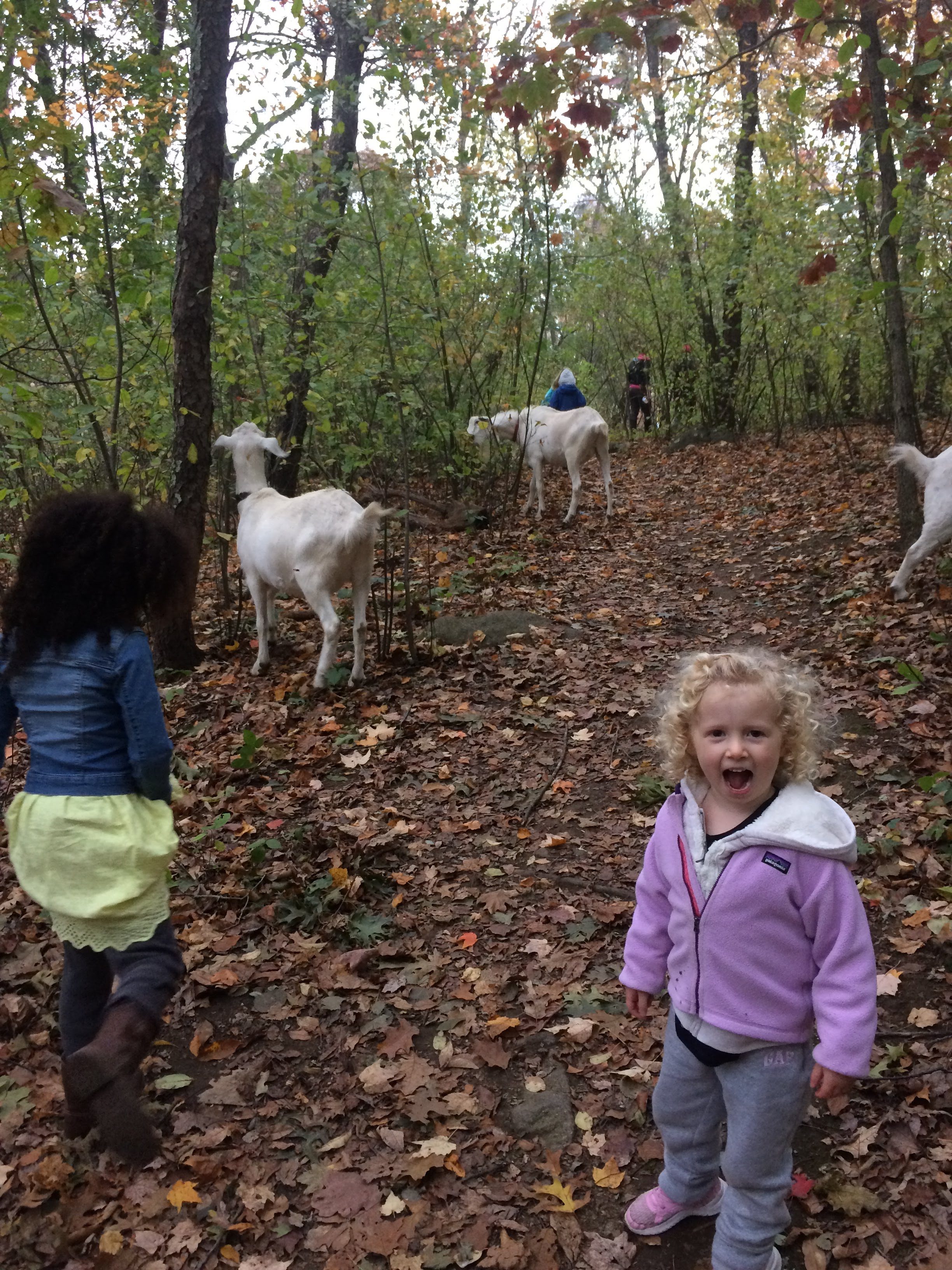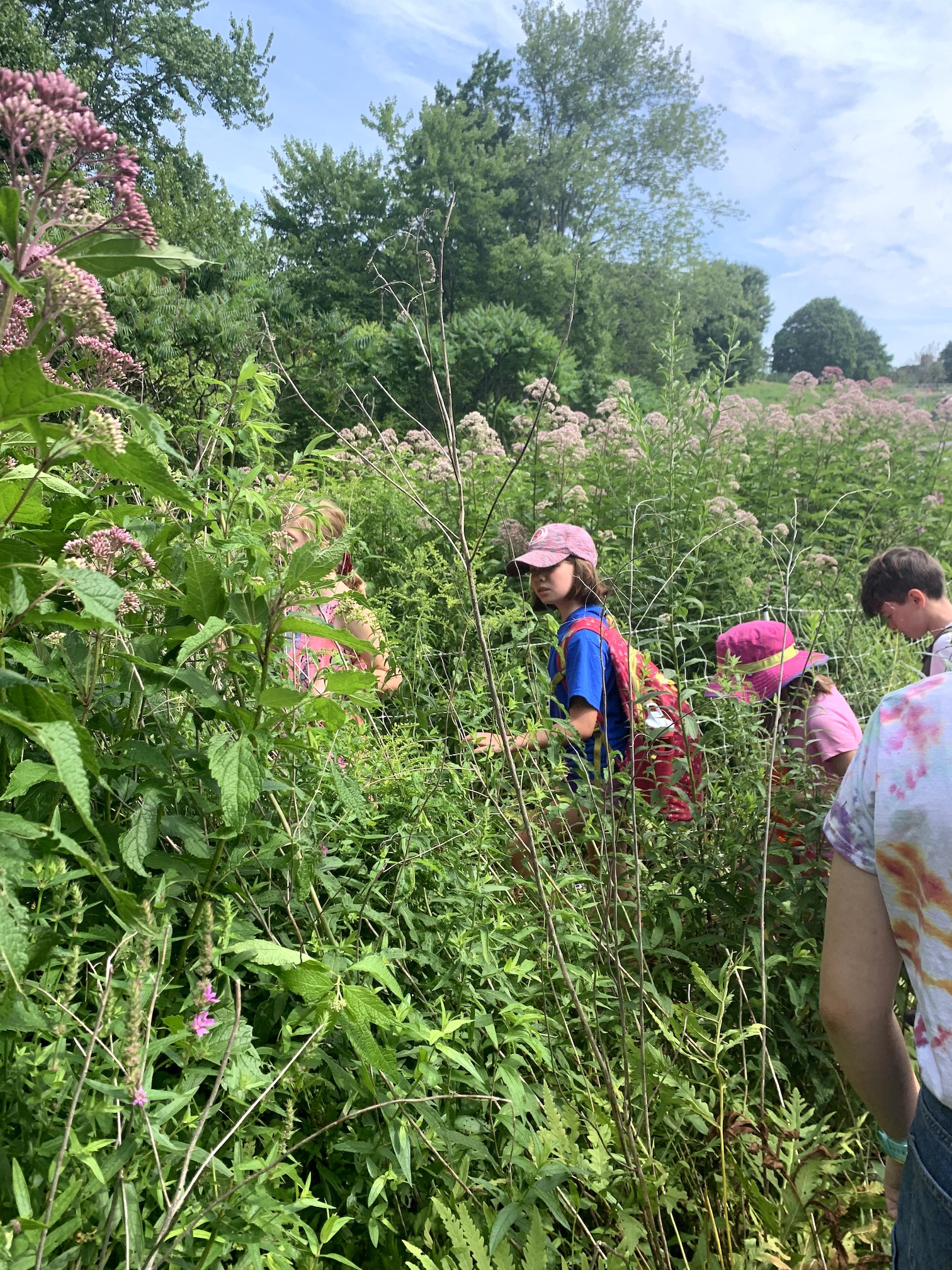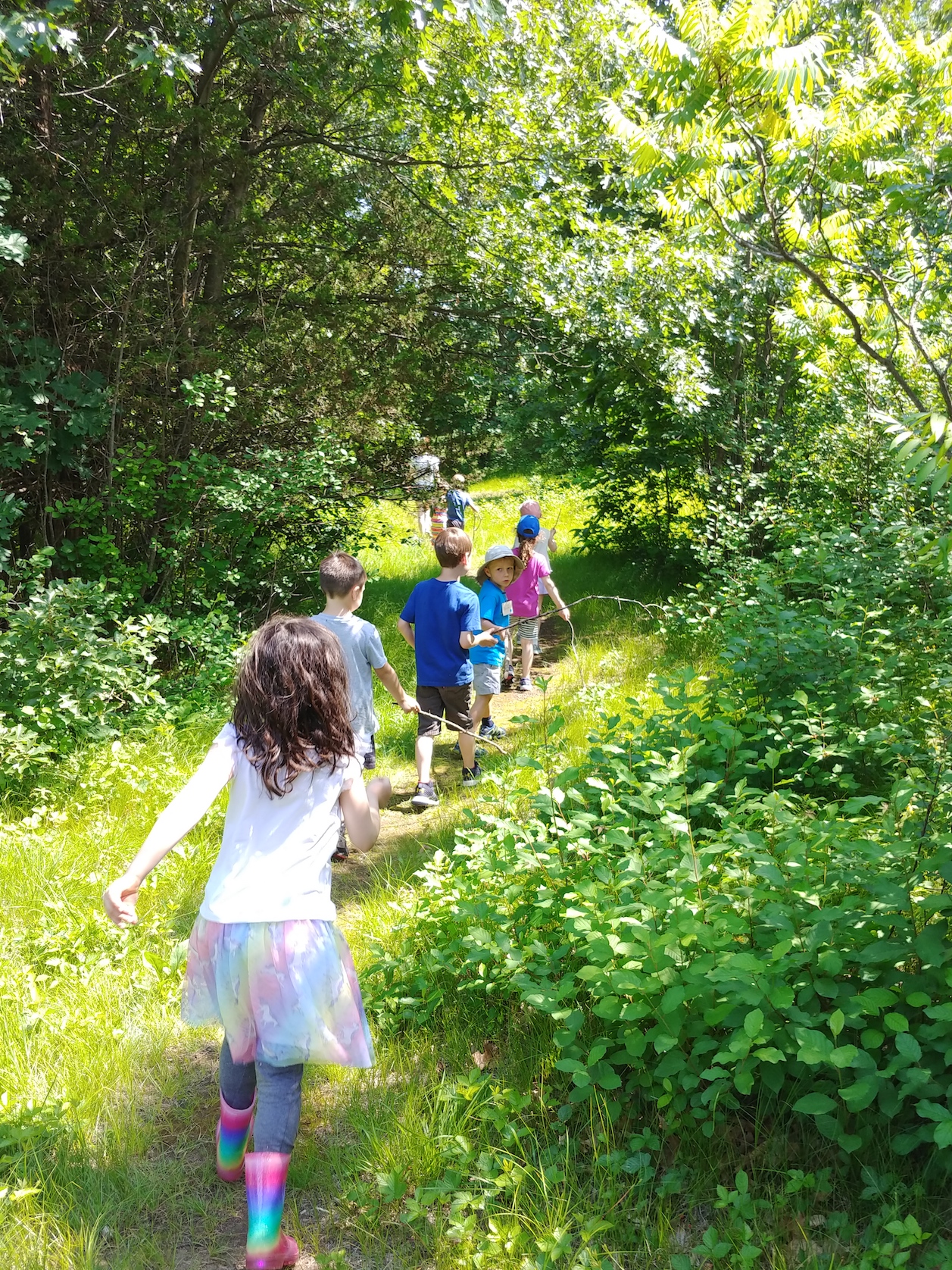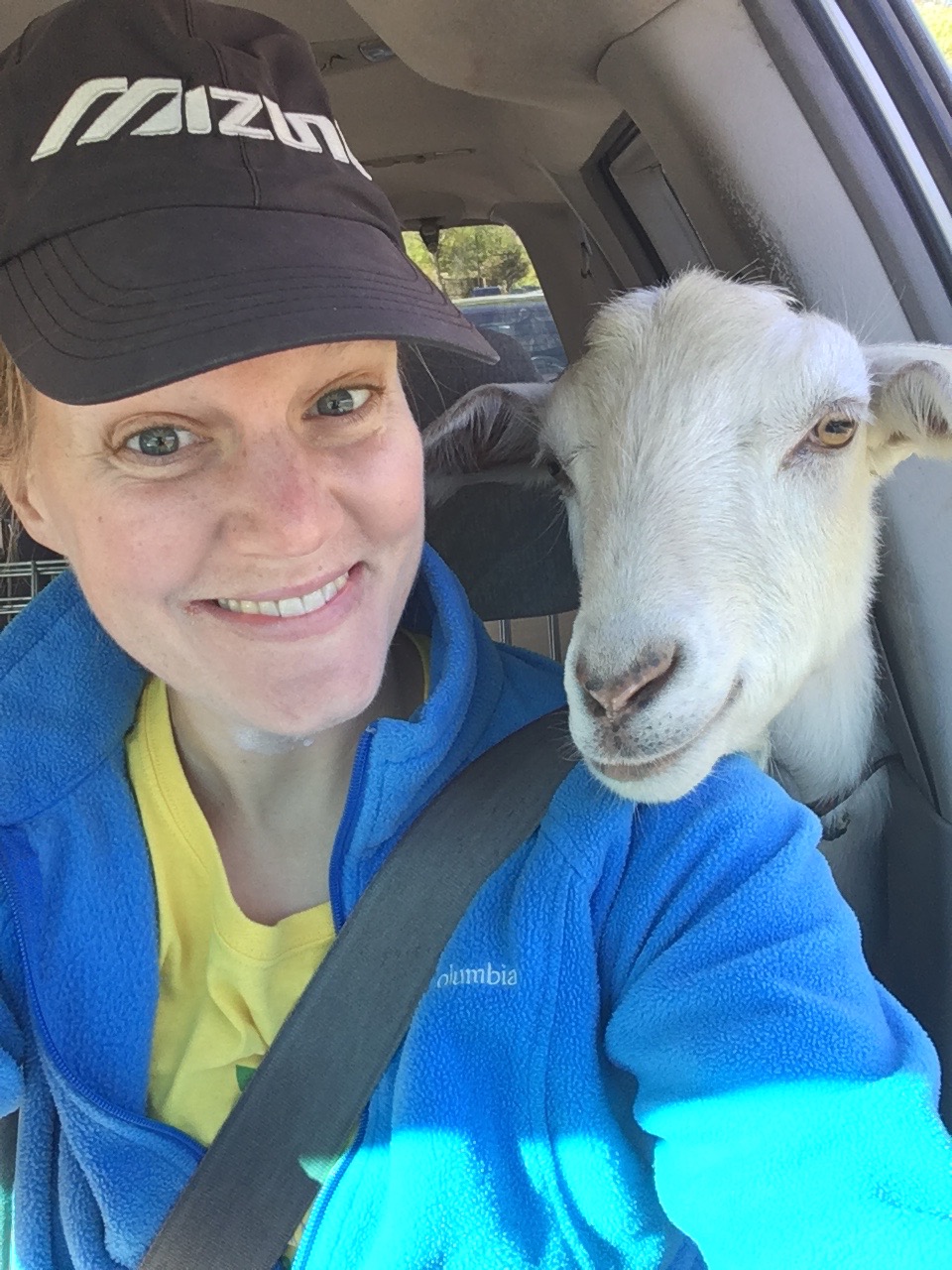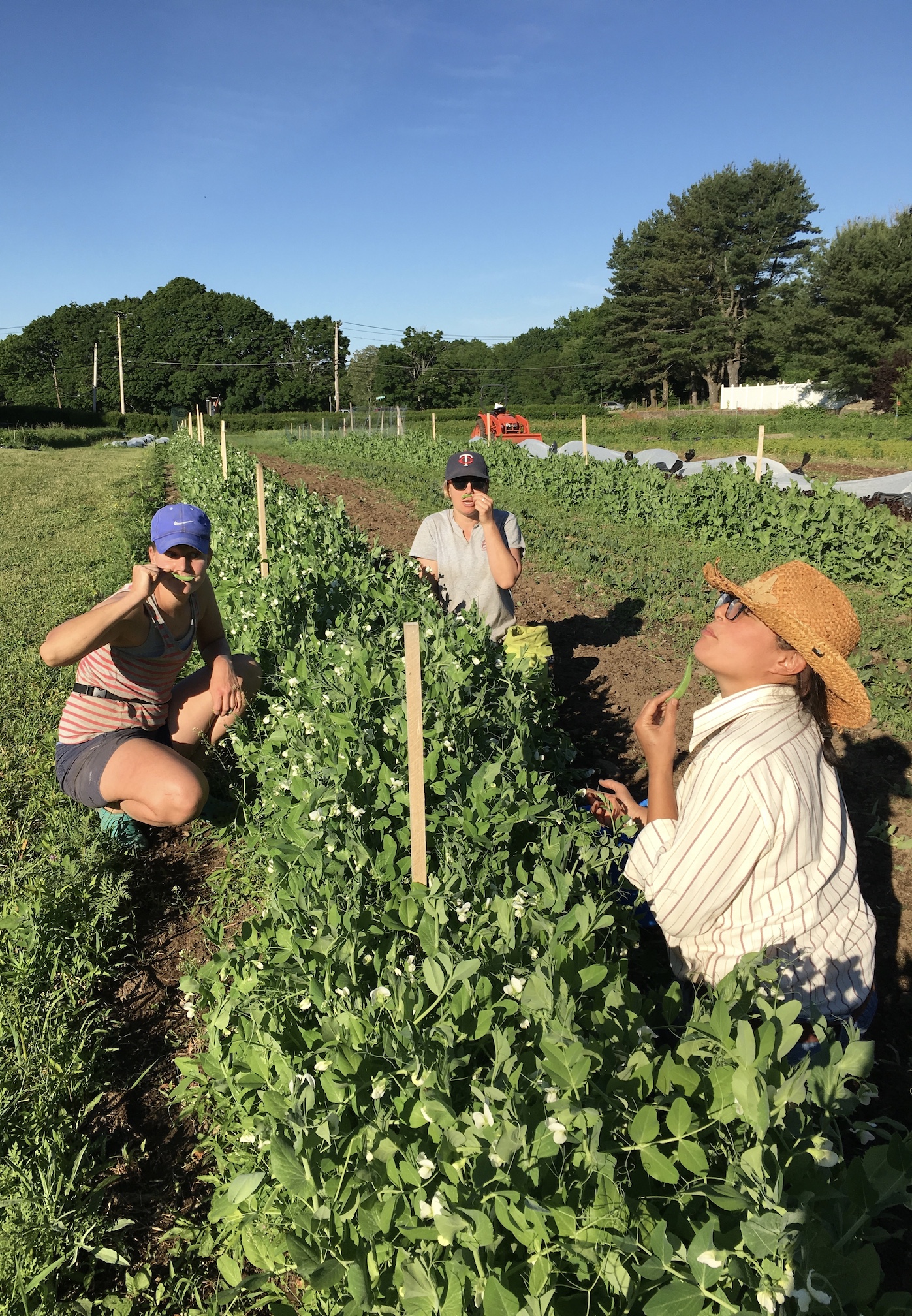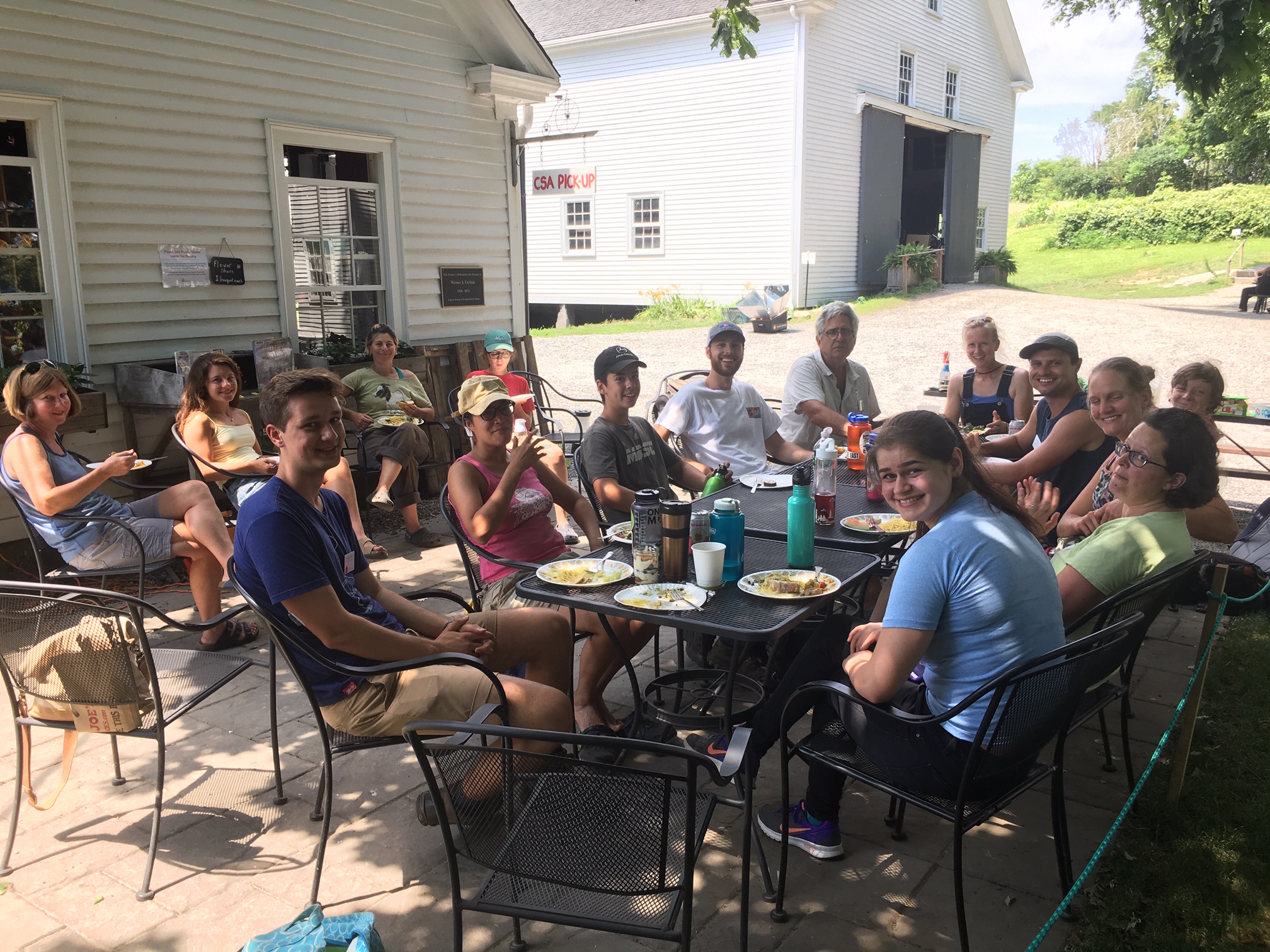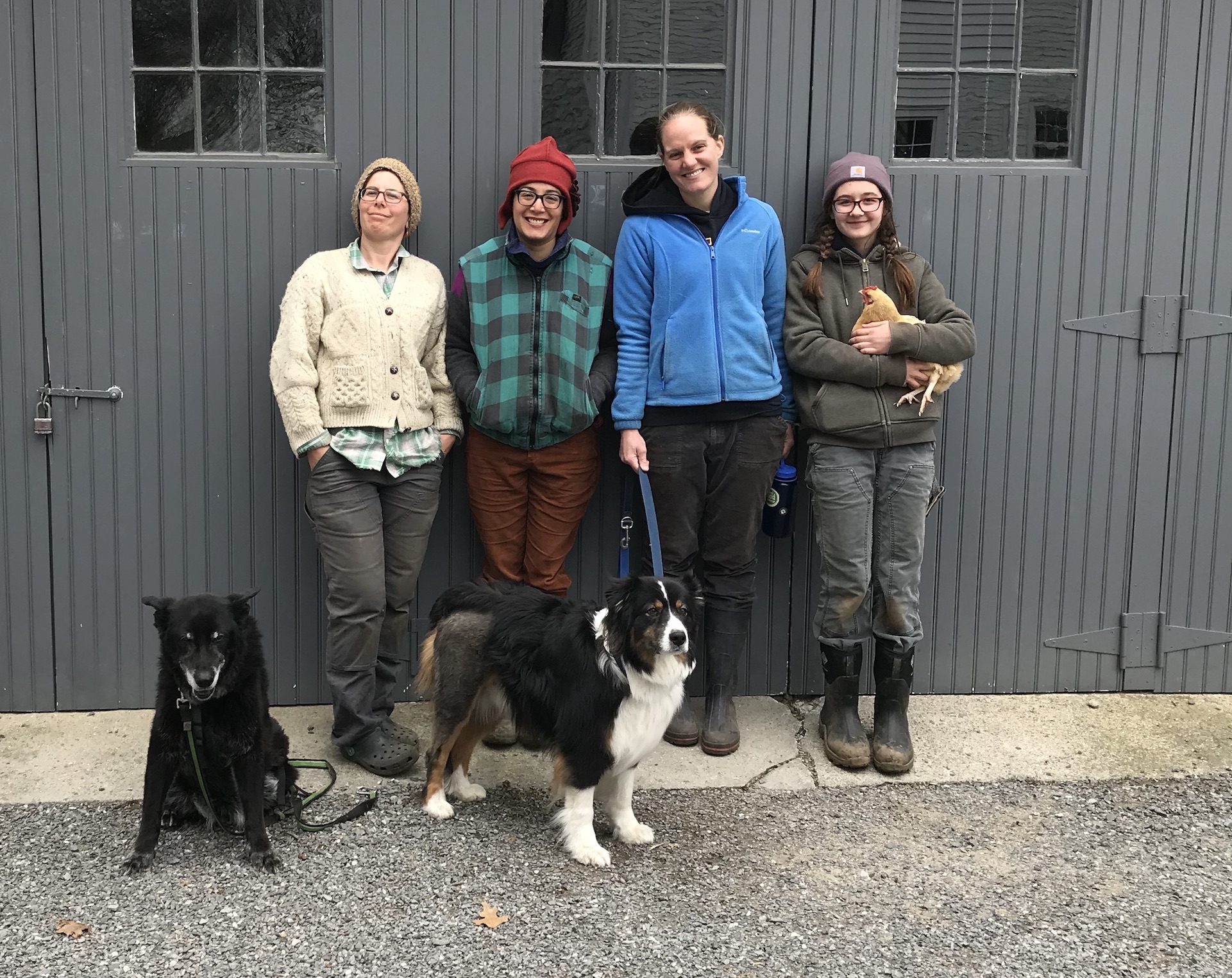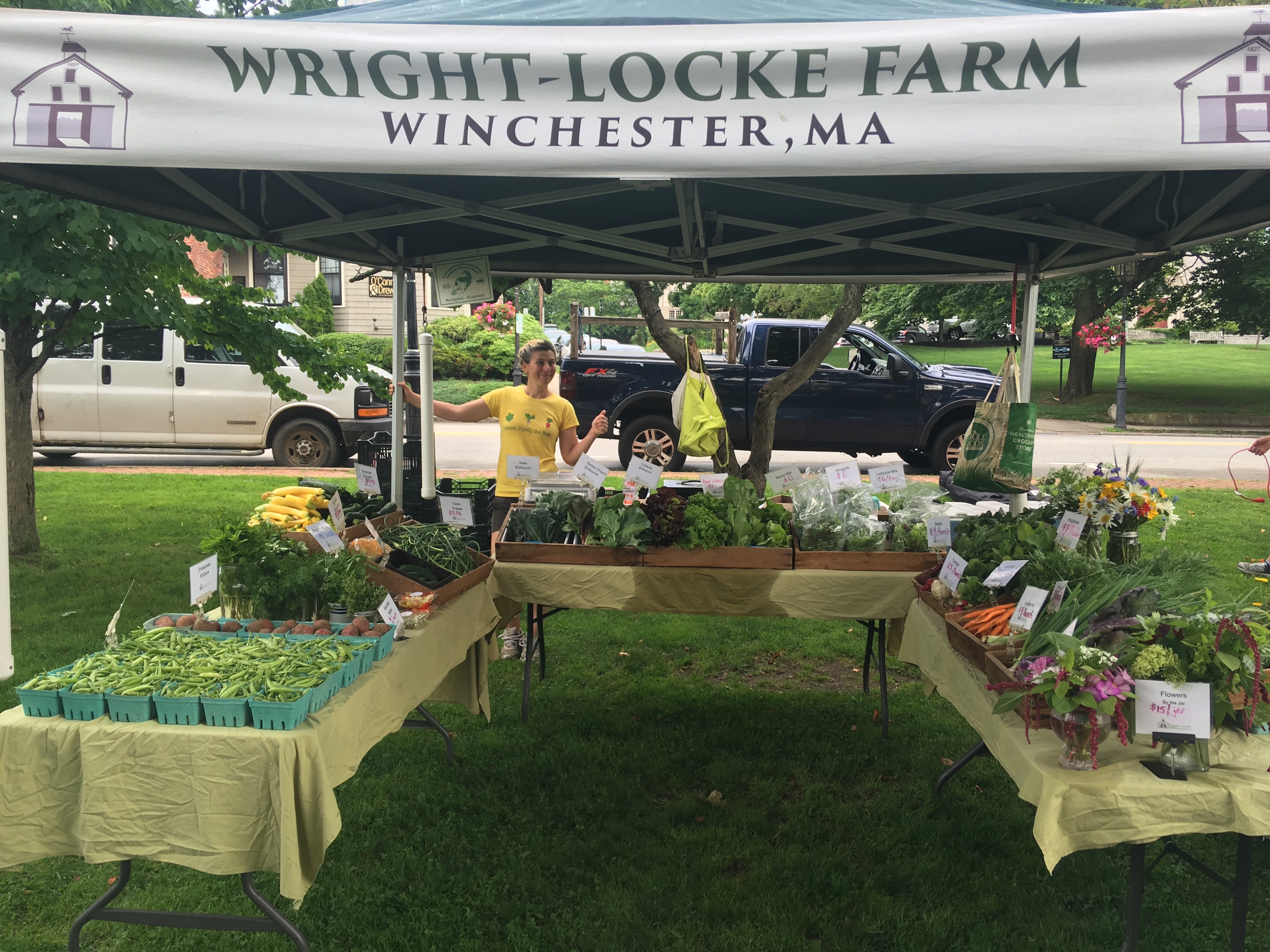May 2020
Written by Executive Director, Archie McIntyre
When I last wrote over a month ago, the impacts of Coronavirus pandemic were just starting to hit home. With all the uncertainty, we were scrambling to craft doomsday budgets and try to figure out our path forward. All of the shutdowns and uncertainty still exist and we donΓÇÖt know when things will return to normal. Probably normal doesnΓÇÖt exist anymore. But, I am heartened to report that weΓÇÖve got our feet back on the ground, our hands in the soil, and the Farm is doing well during these difficult times.
First, I hope you and all of our friends and supporters are doing well and staying safe. I also want to reiterate my thanks to all the Farm staff, Board members, and volunteers. Their hard work and creativity in planning out new ways that the Farm can serve our community, and our mission, while also generating new sources of revenues for the Farm has been tremendous to see. And, of course, thanks are due to many members of the community that have come out to support us.
The shutdown necessitated by social distancing is having a direct, significant impact on the farmΓÇÖs financial health. Many may not realize that we generate significant revenue to support our overall operations from our successful Farm Education and Events programs. Unfortunately, weΓÇÖve had to cancel our Spring programming and it looks like weΓÇÖll need to cancel programing as we move into Summer. Decisions are being made on a rolling basis as the situation becomes clearer and as we receive guidance from Town and State officials. This deprives us of important income and we have to look to other sources to make up lost revenue, including tapping some of our hard-earned reserves.
While the financial picture is concerning, all is not bleak. There are many successes to report:
- The Farm remains open to casual visitors out for a stroll and some fresh air. Most people are very respectful of social distancing and, I know, are appreciative that the Farm remains open. As the weather turns nice, weΓÇÖll have many more visitors so staff will be keeping an eye out to make sure everyone stays safe and we can remain open to the public. Please continue to do your part.
- We are now in to our 5th week of our Farm-to-Go Meals program where customers can order prepared meals and other goodies from local companies. Ordering is on-line and pickups are Fridays on a drive-thru basis. ItΓÇÖs safe to say the program has exceeded our wildest expectations. We literally have hundreds of meals ordered each week and, by all reports, the food is excellent and the customers satisfied, with many placing repeat orders. Thanks to Kim Kneeland and Amy Rindskopf for all of their planning, logistics and execution and special thanks to Susan McPhee, one of our Board members, for initially coming up with the idea.
- The Farm applied for, and received, a Payroll Protection Program loan administered by the Small Business Administration. The PPP loan covers the payroll costs of our 6 full time employees starting April 22 and running 8 weeks. We also will be able to bring on some seasonal, hourly field staff as we do every year to help Adrienne, our Farmer, in the fields. The loan is forgiven at the end of the 8-week program if employees are kept on during the period. This gives us some stability as we chart new directions for the Farm. Our thanks to the folks at Winchester Cooperative Bank for stewarding our successful application and funding the loan.

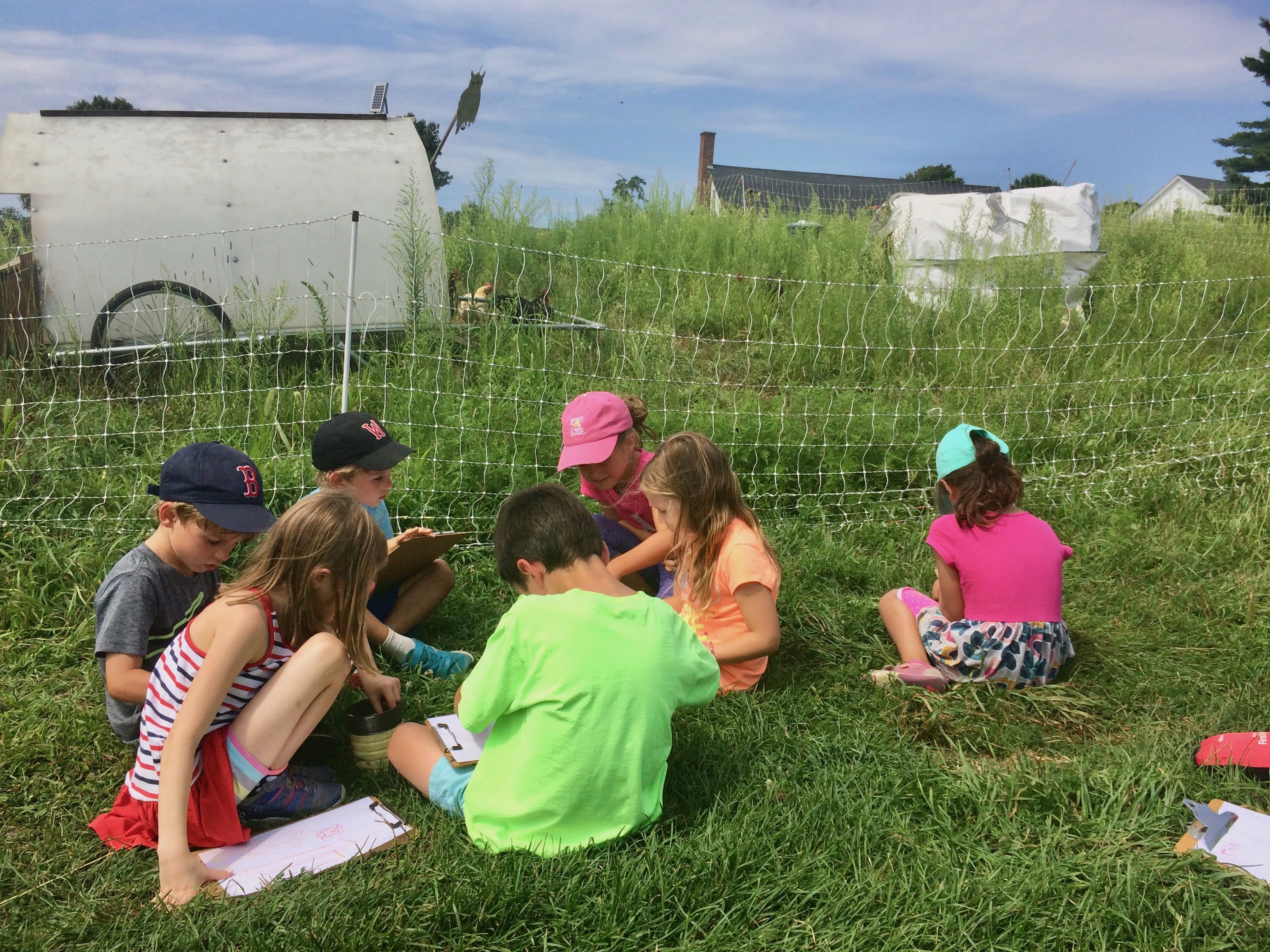
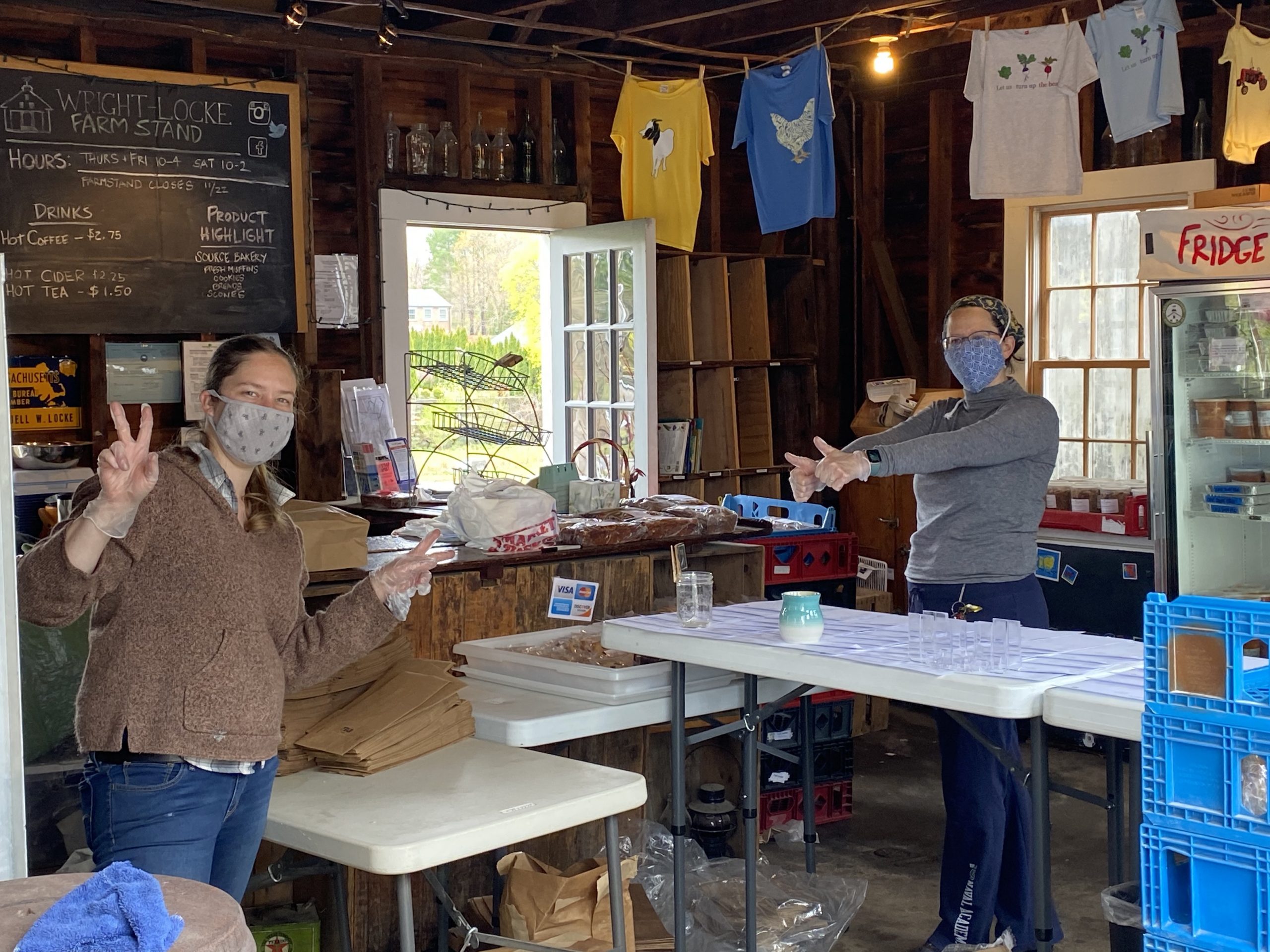
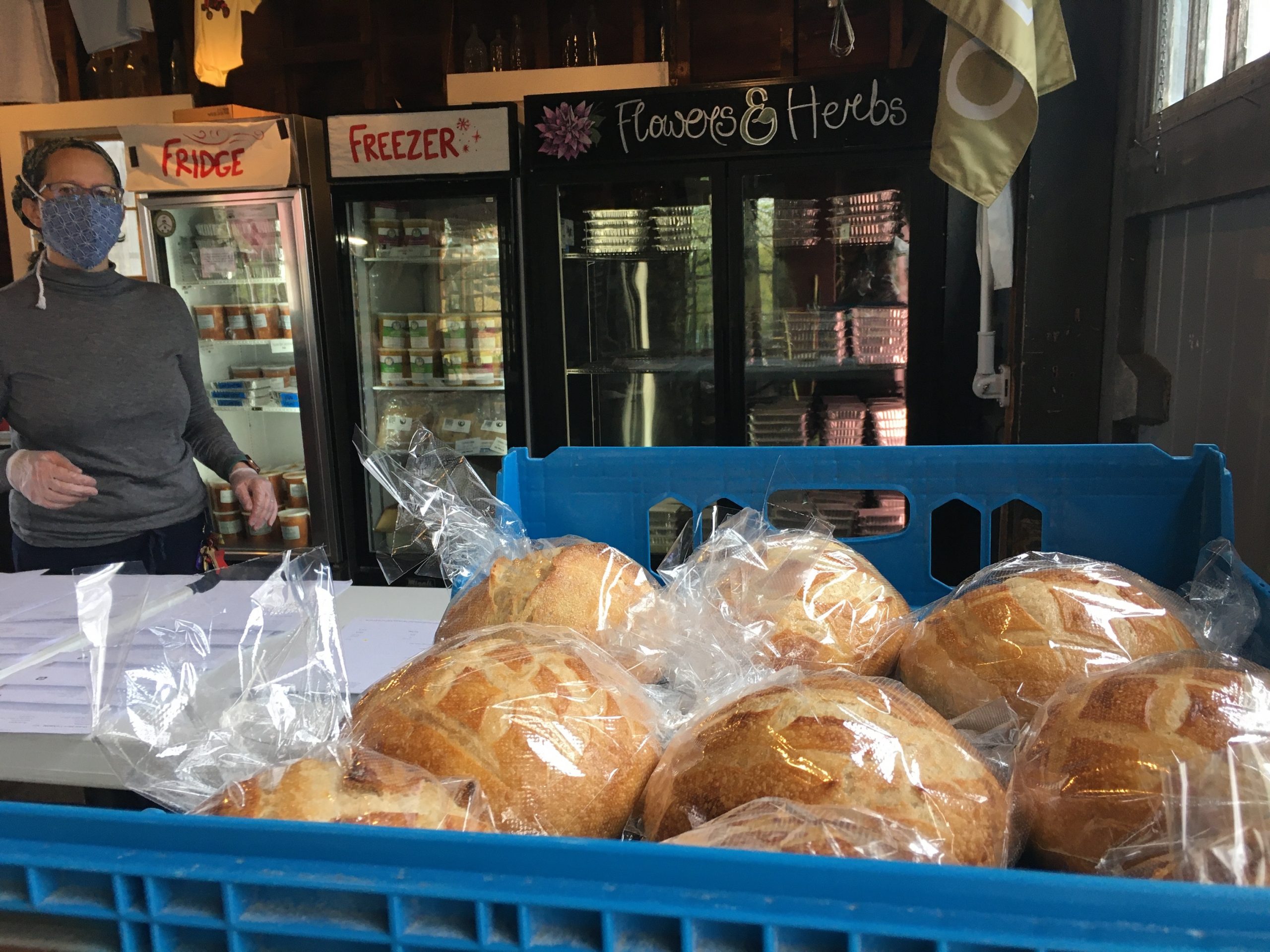
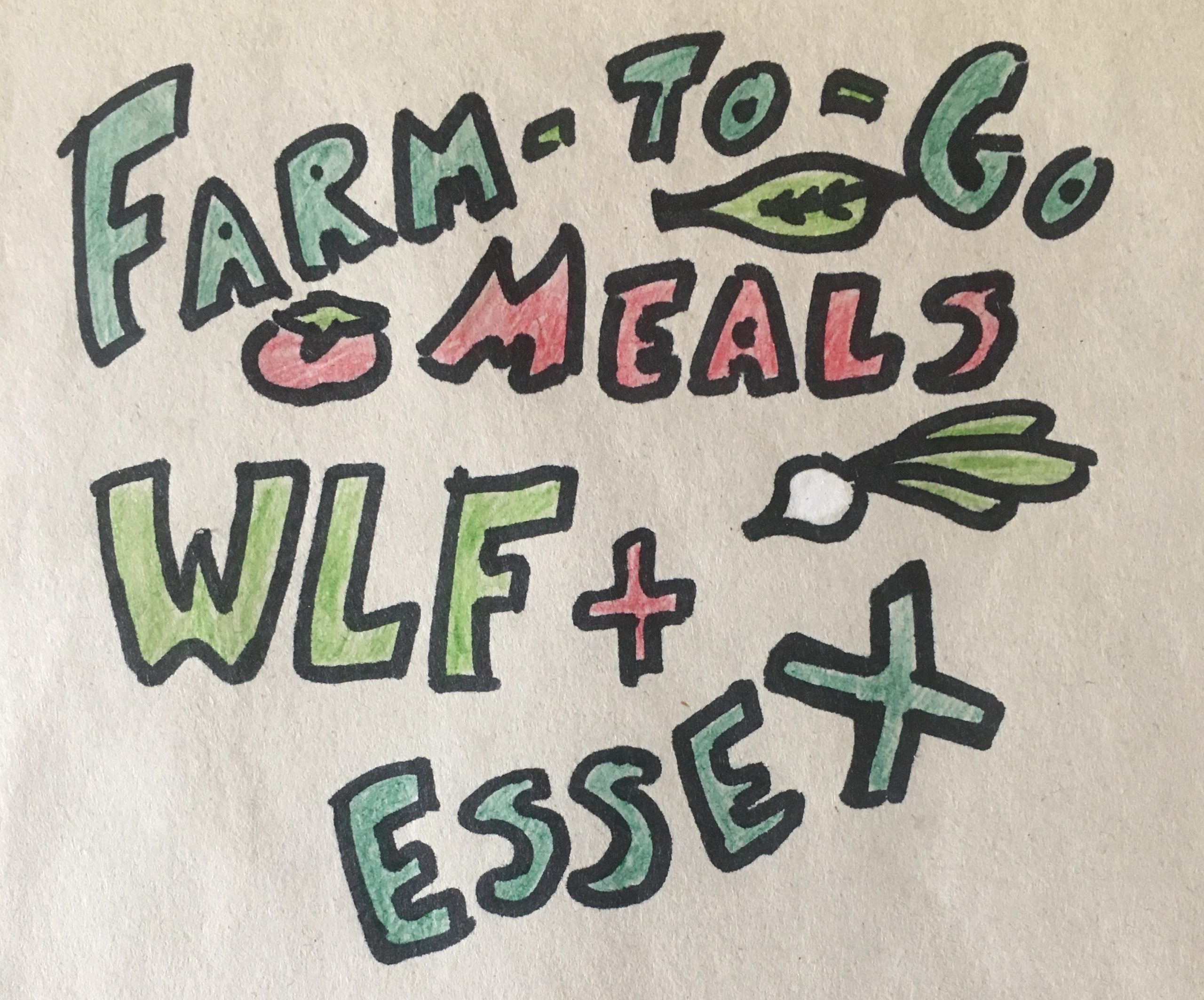
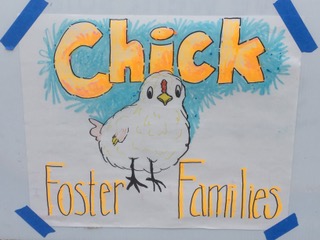
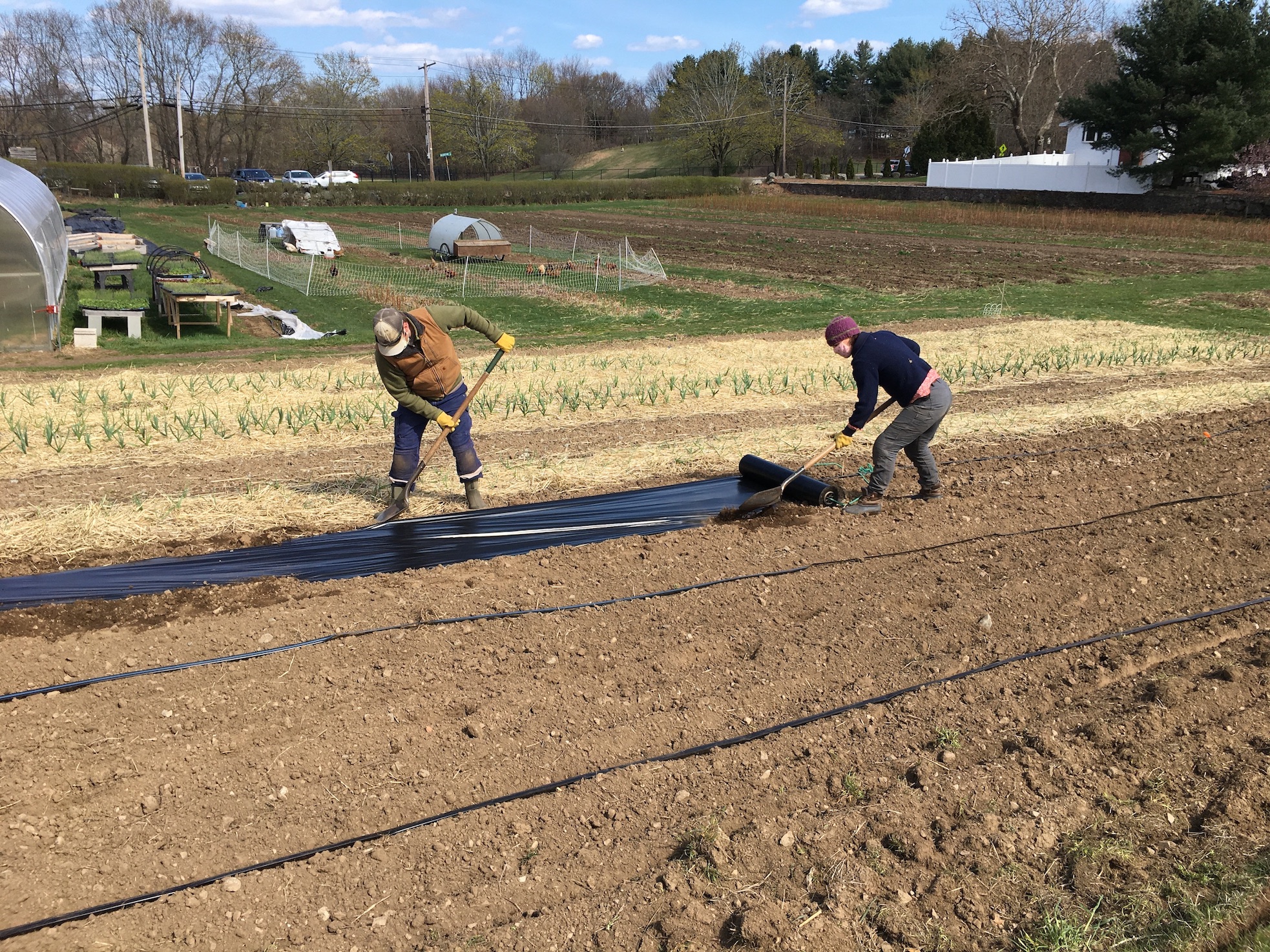
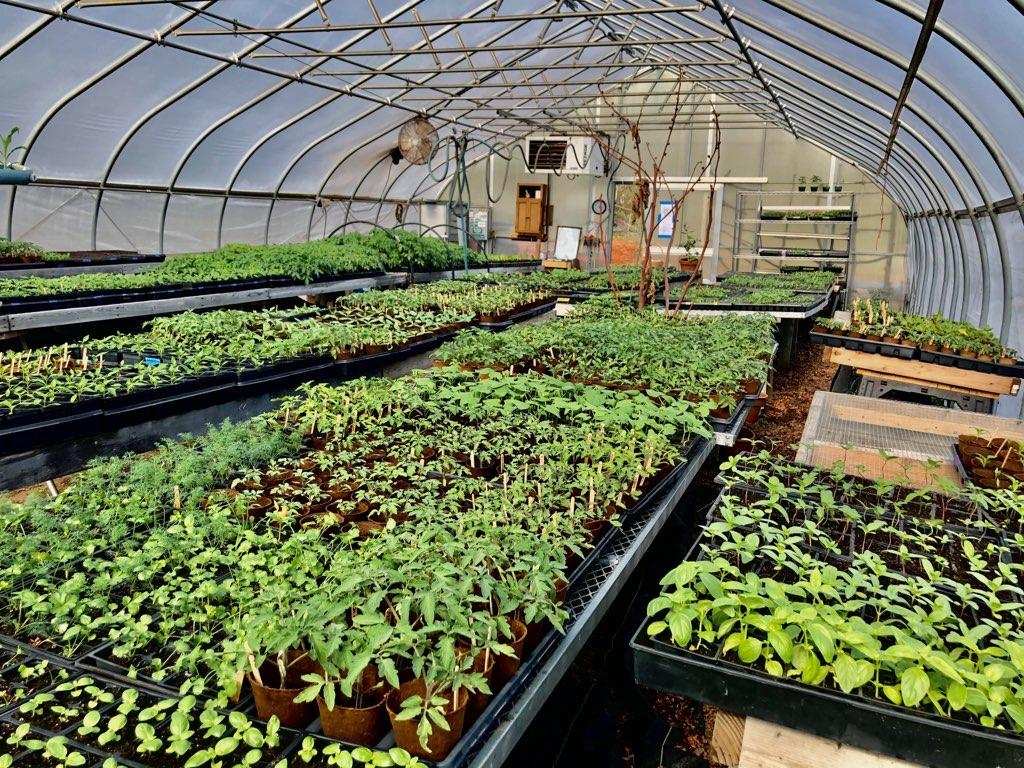
- Another success story is our Chicken Tenders program where 30 families are raising 60 chicks that will come to the farm in about 8 weeks as pullets to replenish our existing stock of laying hens. The program accomplishes three goals ΓÇô provides meaningful educational engagement for some of our Farm Ed families, adds new chickens to our depleted stock and generates some new, net revenue to the Farm from participating families. There are many families on the waiting list and we hope to repeat the program later in the year.
- Adrienne, with reduced help from staff and volunteers, is busier than ever planting out the fields and tending the greenhouse. The cold, rainy spring is to be expected but has not hindered good progress. Our annual Seedling Sale has gone on-line with sales opening up two weeks ago. As of this writing, we have made over $8,000 and are nearly sold out. This is significantly more than last year and exceeds our 2020 budgeted amount. Our big issue is greenhouse space and weΓÇÖre hoping to distribute some of the early items to customers to free up bench space so more seedlings can be planted.
- Planning work continues for our Farm Stand Plus! program which we expect to roll out by mid to late May. With social distancing concerns and protocols likely to be in place for the foreseeable future, we are offering an online order and drive through pick up system to make our produce, CSA shares and produce and products from other local farms and food vendors available to our customers. This program will build upon our Farm-To-Go meals program by adding fresh vegetables, meats, eggs & dairy, and other basic foods for our customers.
- Finally, you may have seen that the solar panel installation on our Squash House and 1827 Barn is complete and we are waiting on Eversource for the interconnection to the electrical grid so we can generate our own green electricity. We expect that this 54,000 kW system will supply all of the FarmΓÇÖs electrical needs and more. Also, construction continues on the All Seasons Barn, albeit at a slower pace with social distancing protocols in place. While we still have the challenge to close the funding gap to complete the building construction, we hope the building will come on line in the Fall and enable year round programing to make up for the disruptions weΓÇÖre currently experiencing.
The engagement by all of our community is helping the Farm weather this storm. The levels of involvement and support in some of the things weΓÇÖre doing demonstrate that weΓÇÖre all needing a way to connect. The never-ending Zoom meetings are productive, but unfulfilling.
The importance open natural spaces and opportunities for connection to our neighbors, ecosystems, and food we eat is now more apparent than ever. Places like Wright-Locke Farm help to keep us whole and sane. WeΓÇÖre all looking for ways to connect, however distanced. What better way than to visit your local community farm, purchase a delicious farm fresh meal, raise a baby chick, or plant a few vegetable seedlings.
We remain grateful that our specific circumstance allows us to continue to function, serve our community, and survive the inevitable disruption that all of us are facing in our work and lives. Please reach out with any questions, comments or ideas. WeΓÇÖd love to hear from you. Be well, stay safe!
